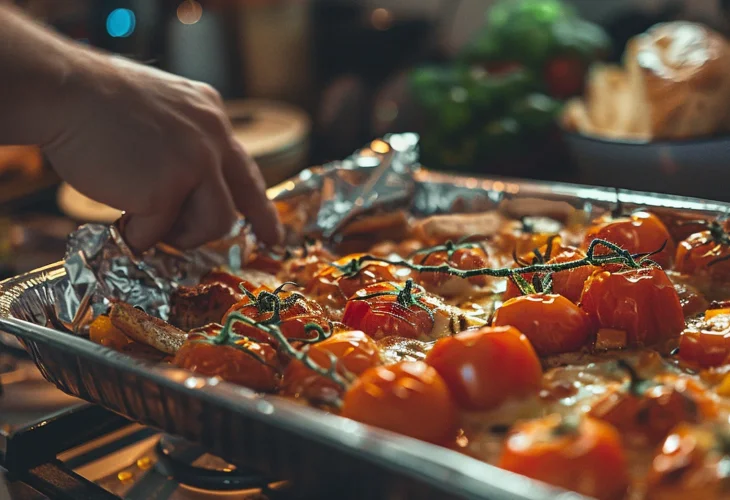Health and Nutrition
Health Risks of Cooking with Aluminum Foil: What You Need to Know
Experts warn that using foil with acidic or salty foods may increase aluminum intake and pose long-term health risks

Aluminum foil is a kitchen staple in many households, but studies suggest that improper use of it during cooking may lead to serious health risks.
A newly published study indicates that cooking certain types of food in aluminum foil can result in particles of aluminum leaching into the food, potentially leading to unregulated intake of heavy metals. According to food safety expert Kelly Magurany, the aluminum levels detected in some foods cooked this way sometimes exceed the safety thresholds set by global health authorities, raising concerns about long-term health effects.
Which Foods Are Most at Risk?
Researchers identified three types of foods that pose the highest risk when cooked in aluminum foil:
Acidic foods – such as tomatoes, citrus fruits, and vinegar-based dishes. The high acidity reacts with the foil, breaking it down and allowing aluminum to seep into the food.
Melted cheeses – due to the combination of high heat, salt, and fats, which can accelerate harmful oxidation processes.
Processed meats – such as sausages, hot dogs, and deli meats, which contain high salt levels that further promote the release of metallic particles.
Health Concerns and Long-Term Impact
Nutrition experts now recommend using alternatives such as parchment paper, glass, or stainless steel cookware, especially when dealing with acidic or salty foods.
Further studies, including a 2021 report by Canada’s Health Authority, have linked excessive aluminum intake to neurological dysfunction and biochemical imbalances in the body. In response, the European Food Safety Authority (EFSA) set a maximum daily exposure limit of 0.3 mg of aluminum per kilogram of body weight.
Experts stress that occasional use of aluminum foil is generally considered safe. However, frequent use — particularly when cooking acidic or salty foods — can lead to aluminum buildup in the body, which may cause irreversible health effects over time.
For safer cooking, it’s best to reserve foil for storage or baking where direct contact with reactive foods is minimal, and opt for non-reactive cookware whenever possible.

